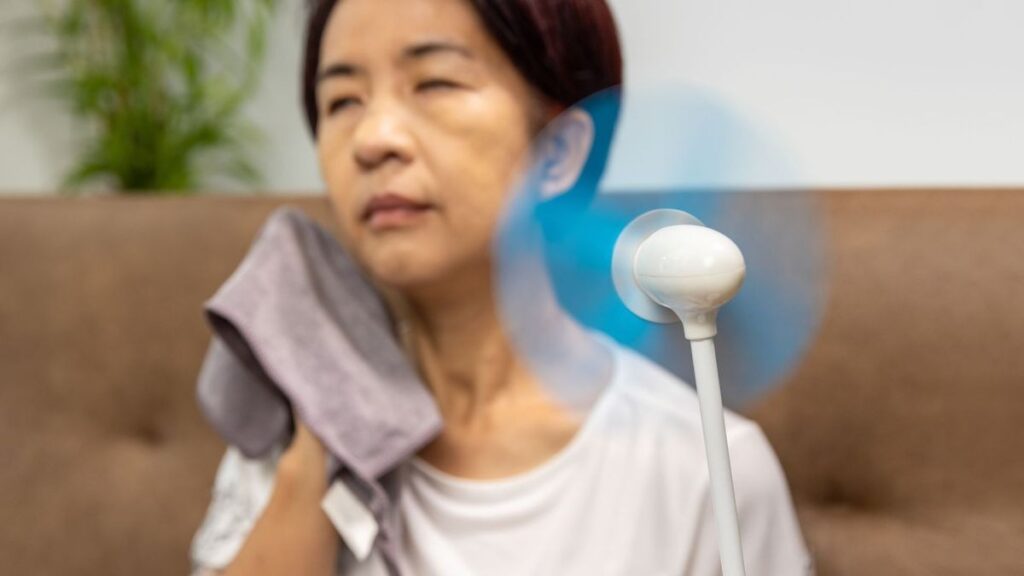Revolutionary drug for hot flushes approved.

The UK has given approval for Veoza, a groundbreaking drug known as fezolinetant, which prevents hot flushes and has the potential to benefit hundreds of thousands of women. This endorsement follows the authorization of Veoza for use in the United States by the Food and Drug Administration in May.
Julian Beach, the interim executive director of healthcare quality and access at the Medicines and Healthcare Products Regulatory Agency (MHRA), stated in an interview with The Guardian on Sunday, “Hot flushes and night sweats caused by menopause are common, and can have a significant impact on a woman’s daily life. We are therefore pleased to have authorized Veoza (fezolinetant) for hot flushes and night sweats caused by menopause via our reliance procedure.”
Beach emphasized that no medicine would receive approval unless it met the expected standards of safety, quality, and effectiveness, with ongoing scrutiny of the safety of all medicines. Veoza has been promptly approved for use in women experiencing hot flushes associated with menopause. However, the MHRA noted that it has not undergone safety and efficacy studies in women over the age of 65, preventing the formulation of a dose recommendation for this age group.
The drug, available only by prescription, is set to be accessible privately starting from January 5, as per officials from Astellas, the drug’s manufacturer. The company has initiated the application process with the National Institute for Health and Care Excellence (NICE) to facilitate women’s access to the treatment through the NHS.
The Department of Health and Social Care has not yet approved the price of Veoza, according to Astellas, the drug’s manufacturer, in response to queries about the treatment’s cost. In the United States, the price was established at $550 (£430) for a 30-day supply.
Veoza, a non-hormonal menopause drug, directly affects the brain to prevent hot flushes by blocking a brain protein known as neurokinin-3, which uniquely regulates body temperature in menopausal women.
Marci English, the head of biopharma development at Astellas, commented, “Fezolinetant’s novel mechanism of action targets the root cause of moderate to severe vasomotor symptoms associated with menopause. We are proud to have developed an innovative treatment option for a condition that has lacked scientific advancement for too long.”
Earlier this year, following its approval in the US, experts highlighted that the treatment could be revolutionary for hundreds of thousands of UK women for whom Hormone Replacement Therapy (HRT) is not suitable.
Professor Waljit Dhillo, an endocrinologist at Imperial College London, who led a pioneering trial in 2017 that paved the way for the drug’s development, stated, “This is going to be a completely blockbuster drug. It’s like a switch. Within a day or two, the flushes go away. It’s unbelievable how well these drugs work. It’s going to be completely game-changing for a lot of women.”
A significant clinical trial of fezolinetant, published in March, demonstrated a reduction of about 60% in the frequency of hot flushes after 12 weeks of use in women with moderate or severe symptoms, compared to a 45% reduction in those who received a placebo. Women also reported a reduction in the severity of hot flushes and an improvement in the quality of their sleep.
Veoza directly targets the temperature control pathway and does not replace estrogen, which sharply declines during menopause. However, it does not address the broader range of symptoms some women experience, such as fatigue, muscle weakness, and mood swings.

Diane Danzebrink, a menopause campaigner, expressed, “Hot flushes and night sweats are common menopause symptoms that can be debilitating, impacting personal health, wellbeing, family lives, and careers. It’s encouraging that doctors will now have an alternative option to consider during a consultation, based on individual suitability. This decision is particularly significant for those who have felt overlooked in the past in terms of treatment options or those who prefer not to use Hormone Replacement Therapy (HRT).”


